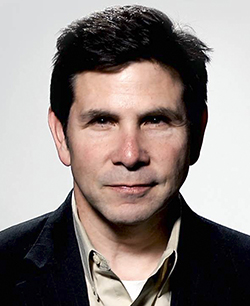For roughly a decade now, activist-level atheists (such as David Silverman, president of American Atheists) have organized rallies, purchased billboards, and hit the media circuit trying to relay their message that “One Nation Under God” doesn’t apply to all Americans. In one of our first appearances together on Fox News, Silverman described the (apparent) plight of atheists in America as one of oppression, discrimination, and even persecution. On air, Silverman lamented that America’s ranks of evangelicals would “just as soon see all of the atheists die.”
I disagreed strongly, using three reasons as evidence: First, Christians follow the Bible, which teaches us to love people and not wish them to be dead; second, no Christian would want an atheist to die in a state of unbelief knowing that such persons are spiritually unprepared to face God; and finally, I explained that in 20+ years on interaction with Christians from all denominations and ethnicities, I have never heard any pastor or leader speak with malice about atheists.
Do we wish that atheists would come to faith in God? Of course. Do Christians wish atheists would stop their efforts to erase all references to God from American consciousness? Yep. Do evangelicals believe that secular activists are effectively undermining other’s rights of free speech and of religious expression (You know, the 94% of Americans who believe God exists)? We do. Christians certainly oppose atheism, but none of the thousands of religious folk I have ever known expressed a desire for hurt to come to any atheists.
I am grateful atheists have never been martyred in this nation. But their activism against belief is serving to incrementally kill off the freedoms of others. Therein lies an irony: The Judeo-Christian worldview that birthed America provides a context for atheists to safely live in a state of unbelief.
From the writings of our founders to the brilliant prose of Dr. Martin Luther King Jr.’s 1963 Pulitzer-prize winning work Why We Can’t Wait, astute thinkers have recognized that God and biblical morality have been part of America’s DNA of freedom.
The Judeo-Christian worldview acknowledges that God is the ground of moral reality. Biblical morality (including the precepts of the 10 Commandments) is objective (revealed by God, not arbitrarily “invented” by man). Because man is made in the image of God, each person possesses inherent worth, value, purpose, and dignity. Each person has God-given rights, and because of their divine origin, our founders called them inalienable. The underlying belief was that man couldn’t take them away (and shouldn’t try).
Among these rights is the freedom of religious expression. But there is not an inherent right to be shielded from encountering things with which you don’t agree. If an atheist doesn’t want to believe in God, fair enough- he doesn’t have to. But a David Silverman or a Michael Newdow should not attack and undermine the very milleau that gives them the freedom to safely live in their state of unbelief. When such activists use political and legal leverage to remove crosses that have been in veteran’s cemeteries for decades, to see all postings of the Mosaic Decalogue eliminated one by one, they are seriously undermining the context of freedom in which American’s trusted for 230+ years.
Atheists, in a free America you must stomach this: We are a pluralistic culture in the sense that you may believe (or not believe) what you wish. But we are (or, at least were) a monolithic culture in the sense that your freedoms are guaranteed protection because they come from God. The agreed-upon presuppositions that made this the land of the free, included beliefs that:
- God exists
- People are made in His image
- There are universal rights and wrongs knowable by man
When we honor fellow humans, we are honoring the One whose image they bear
Leaders past and present have re-affirmed these things. In 1781 Thomas Jefferson stated in his Notes on the State of Virginia, “God who gave us life gave us liberty. And can the liberties of a nation be thought secure when we have removed their only firm basis, a conviction in the minds of the people that these liberties are of the Gift of God? That they are not to be violated but with His wrath? Indeed, I tremble for my country when I reflect that God is just; that His justice cannot sleep forever.”
In 1775 Alexander Hamilton wrote, “The sacred rights of mankind are not to be rummaged for among old parchments or musty records. They are written, as with a sunbeam, in the whole volume of human nature, by the Hand of the Divinity itself, and can never be erased or obscured by mortal power.”
In 1924, then President Calvin Coolidge spoke at the unveiling of a statue honoring Methodist leader Francis Asbury. During his speech, he said, “Our government rests upon religion. It is from that source that we derive our reverence for truth and justice, for equality and liberty, and for the rights of mankind. Unless the people believe in these principles they cannot believe in our government.”
President John F. Kennedy, in his 1961 inaugural address, said, “The rights of man come not from the generosity of the state, but from the hand of God.”
But the telling of American history, according to atheists like Silverman, is that this nation has been a strictly secular, humanistic, godless endeavor. But who is right? Is it the 21st century secularists groping for relevance by seizing any and all media opportunities? Or men like Fisher Ames, writer of the First Amendment (who desired that the Bible be taught in public schools, because it was an effective vehicle for teaching morality to young people). Isn’t it interesting that activist atheists seem to know more about the application of the First Amendment than the man who wrote the First Amendment?
Atheists say it is time for their voices to be heard. Fair enough. But just what might that message be? What meaning, purpose, or transcendent mandate do the atheists have to share which humans must hear in order to better the condition of mankind? Their current champion, Richard Dawkins himself, said* that our godless universe is one of, “blind, pitiless indifference.” Why do atheists want a seat at the table of cultural leadership, when (in America, at least), the table’s guest of honor has been God?
Don’t care for God? Fine, no one is forcing the atheists to believe anything. But atheists, don’t erode the very culture that gives you the freedom to disbelieve.
NOTE:
Richard Dawkins, River Out of Eden: A Darwinian View of Life. (New York: Harper Collins), p. 113






